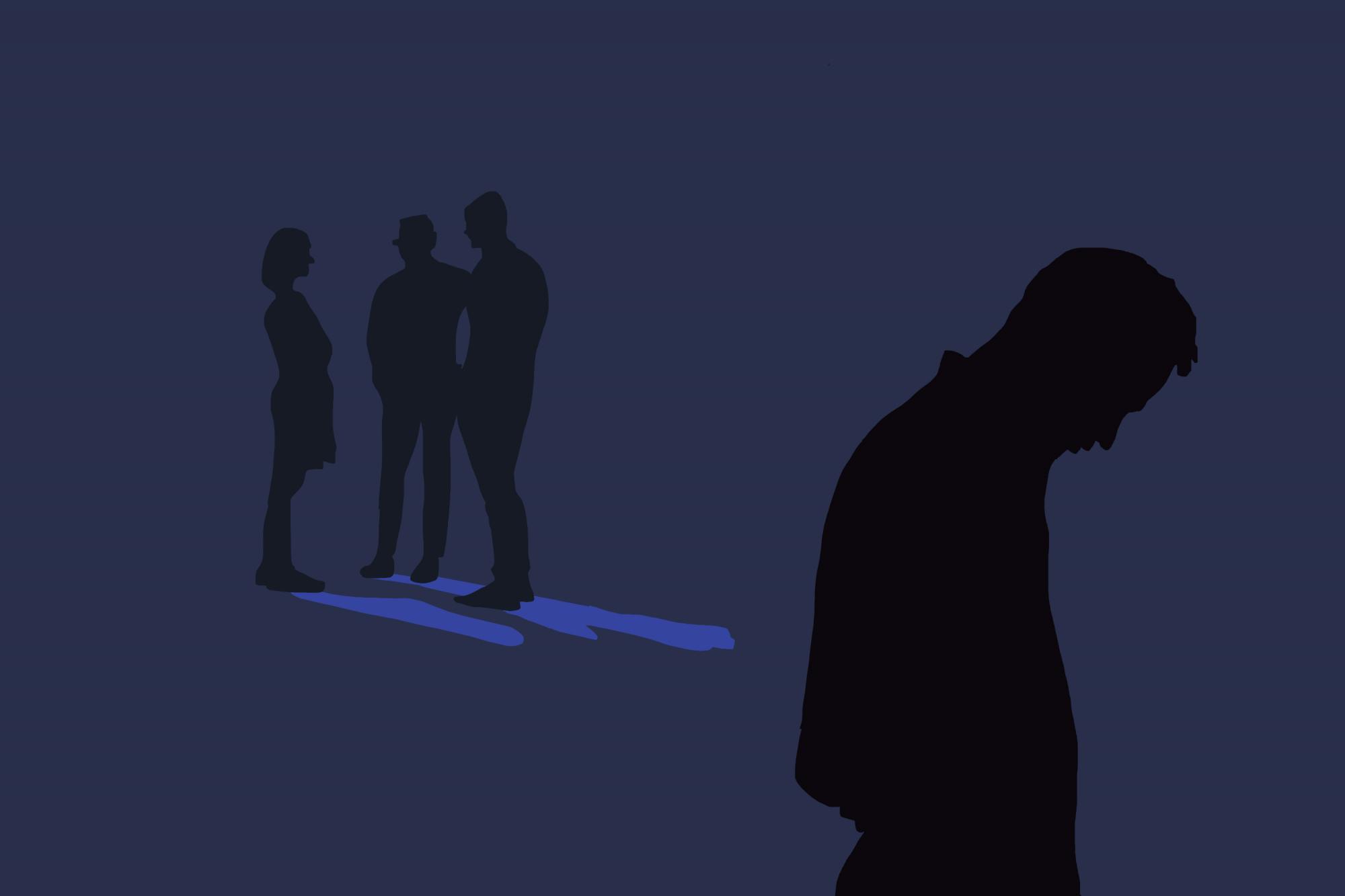If you’re reading this, you’ve probably been rejected from something at Dartmouth. If you haven’t yet, we sincerely hope that you will be soon. This isn’t because we’re sadists and we want to see you fail. Instead, we hope to see you succeed. We just know, after going through painful rejection ourselves, that trying — and failing — is an integral part of a person’s eventual success.
Most students arriving at Dartmouth were at the top of their class in high school: the star of the debate club, the starter on the soccer team, the brightest and most involved, the busiest and most well-rounded. These successes are probably what got them to a school like this in the first place. However, when there are 70 incoming high school debate stars vying for 10 spots on the debate team, it doesn’t take an advanced mathematician to see that someone is going to get cut.
We spoke to David Millman ’23, Dartmouth’s current Student Government president, for some insight on rejection in college. It just so happens that during his first term at Dartmouth, Millman experienced rejection from — you guessed it — student government. When he ran for student senator, he lost.
“You do have two choices when you get rejected from something,” Millman said. He explained that you can either wallow in your disappointment or train yourself to move on from that failure and try again. Millman chose the latter. The following spring, he ran again for the same position, against the same opponent, and won.
Millman also pointed out that the initial rejection allowed him to take part in extracurriculars that he otherwise wouldn’t have had time for.
“Instead of being involved in student government, I got involved with campus sexual violence prevention,” he said. “Sometimes the opportunities and experiences that you get exposed to from rejection and from failure end up being even more rewarding than what you were originally trying to do.”
Like Millman, Chandini Peddanna ’25 experienced a freshman fall rejection. She came to Dartmouth thinking that she wanted to be involved in Mock Trial — just like her older sister, a Dartmouth ’20. But when she tried out for the team, she was rejected.
“I kind of put all my eggs in one basket with that club, in that it had a very late tryout, and most of the other clubs that had tryouts were already done,” Peddanna said. She said she felt like she had missed her opportunity to get involved with extracurriculars, until one day, on a whim, she went to a Ledyard Canoe Club meeting. Peddanna admitted that she wouldn’t have considered herself very outdoorsy when she arrived at Dartmouth, but she found an unexpected community at Ledyard.
“I found my place on campus and it wasn’t the way I thought it would go,” she said. “I’m glad that I kind of found my own path and pushed myself.” Although Peddanna didn’t follow in her sister’s footsteps, she became a part of a club she truly enjoyed. One could even say rejection served Peddanna well.
Ulla Libre ’25 was also able to find value amidst the disappointment of recent rejection from a cappella auditions. After quitting the varsity rowing team, Libre found herself with extra time on her hands, so she decided to try out for a cappella. Libre said that she’d never taken voice lessons but had always loved to sing, and even though she didn’t end up in a group, auditioning was worth the risk.
“I’m obviously sad I didn’t get into a group, but I do feel like it’s not going to stop me from pursuing music in the future, or singing or anything like that,” she said. At the end of the day, she said that she met wonderful people during the process and was proud of herself for trying something outside her comfort zone.
Many of us avoid doing just that because we are scared of the worst possible outcome. When we derive our sense of self-worth from success in activities we are good at, failure seems unbearable. We deprive ourselves of potential successes — or potential lessons learned — by choosing the only surefire way not to fail: not trying.
When you look at rejection from a lens of self growth, it becomes almost freeing. Rejection is like a clean slate: You get to start anew, and you’re forced to be introspective and re-evaluate the source of your identity. Do you like debating because you’ve always been praised for your abilities, or is it something you actually enjoy doing? Is your skill as a debater really nullified by your rejection from a team that only has room for a few? These questions are hard to think about, but they’re important.
Of course, adopting this mindset is easier said than done. I (Mariel) was rejected from the club tennis team just last week, and it was, admittedly, not a fun experience. However, I’m glad I tried out and I don’t see tennis any differently. I still love to play, and will for a long time. My failure came with a few valuable, unexpected gifts: first, time to pursue other interests; and second, the revelation that being rejected isn’t so bad after all, which has made me more willing to try new things and potentially get rejected again.
With that being said, we encourage you to see the value in rejection. It’s not something to shy away from. It’s uncomfortable and difficult, but it’s a challenge — and maybe one you’ve never faced before. Rejection is asking you who you are. Do you have an answer?




